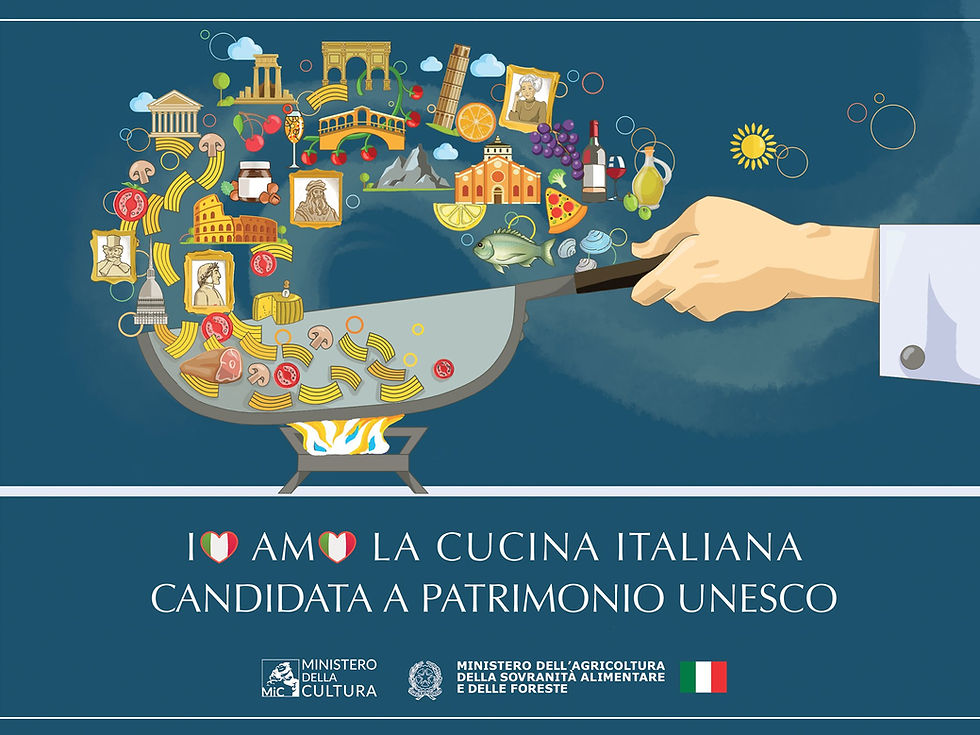Letter to the Dante Alighieri Society Sydney, no. 2
- Apr 15, 2023
- 3 min read
Updated: Apr 22, 2023
20 Agosto 2020
di Paolo Totaro AM
Cari Fabio, Antonella, Concetta,
thank you for “La lingua italiana che cambia: imbarbarimento o arricchimento?”, an online talk prepared and presented with real skill. It explored the assumption that Italian language change can be good or bad and if bad, neologisms should be proscribed by L’Accademia della Crusca. I liked Concetta’s examples, chosen with tongue in cheek. The fact is, modern linguistics avoid value assessments preferring functional ones. That is, whether a change in the way we speak serves or not a function among the people who use it -families, tribunals, parliaments, media and so on.
If English is the prime means of communication in Australia, the complementary use of ”community” languages is a most effective aid to communication. And if English and other languages influence each other, English is the lingua forte –the imperial language that Latin once was, in which the laws are written. Continuous transformations happen in the language of the media, the sciences, the law. In literature, who would dream today of criticising a Joyce or a Gadda for their revolutionary use of language in the XX century? And of course, poetry uses all transformative means at its disposal -now even more than at the time of Dante when it acted as midwife to our new language.
As to the term imbarbarimento, any currency it has is because of the value-neutral etymology: oi Barbaroi were foreigners -only later became rude, primitive, uncouth. Living as we do in an English dominated soundscape, pronunciation, choice of words have been real barriers to economic/cultural advancement. These are facts of life for many, if not most, second-generation immigrants. And those chains of relationships in shops as in schools as in workplaces, are factories of neologisms, of wonderful clusters of word-sounds bravely offering alternatives to obsolescent originals, easily changing as localities, needs, generations do change.
Many years ago, researching reasons for disadvantage among immigrants, and ways out of it, I learned that, to understand, one had to shift continually from linguistics to economics, and to other seemingly unrelated disciplines. It was and is an incredibly complex field which has been ploughed through by distinguished scholars, of which certainly I am not one. So, at this point, I would need a sociolinguist to guide me. Not having one at the ready, let me conclude by repeating the obvious, basic reality. Living languages change to adapt. There is nothing inherently bad or good in that process. Except that when languages stop to change they become like Latin and Sanskrit. Venerated, studied but as dead as John Cleese’s parrot.
Un’ultima riflessione. Ieri mi e’ sembrato che l’Accademia della Crusca fosse vista come magistratura che ancora oggi aggiudica cosa va e cosa non va nell’evoluzione dell’italiano. Ma se si va sul sito dell’Accademia, si viene corretti. Anche l’AdC si rinnova. Mi e’ stato suggerito di leggere Elogio dell’italiano, un libro-intervista tra il presidente della Accademia della Crusca, Claudio Maruzzini, e una giornalista professionalmente eccellente, che sintetizza in modo limpido la posizione attuale dell’Accademia. Passo a voi il suggerimento e concludo con una osservazione non mia:
“Comunque, forse questo puo’ servire da sprone alla Dante Alighieri di Sydney ad esprimersi di più in italiano, la lingua che ha il compito di promuovere. L’Alliance Française ha un comportamento diverso. Il fatto stesso che la Dante si rivolga ai suoi interlocutori spesso in inglese indica che l’italiano è una lingua debole. Il fatto di rinunciare ad usarla di più ne è prova. Quindi perchè lamentarsi dell‘imbastardimento quando la Dante stessa sembra insicura del valore del nostro idioma?”





Comments